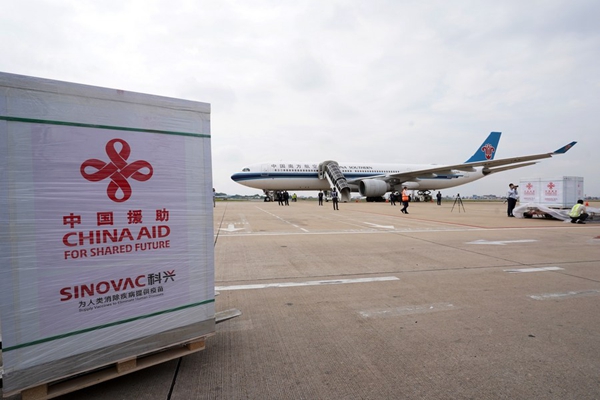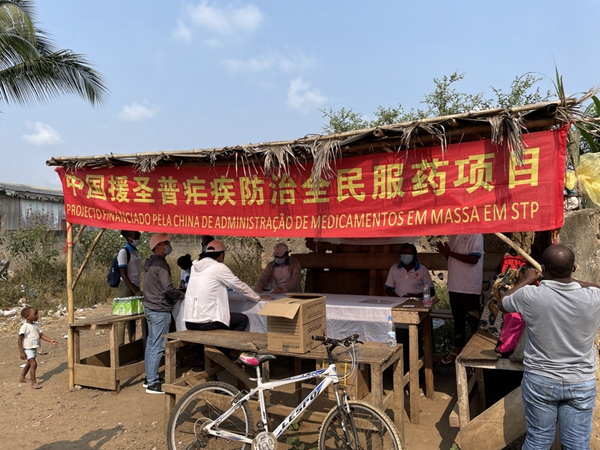WEF applauds China's commitment to combat COVID-19 pandemic: senior healthcare executive

Photo taken on March 29, 2022 shows packages of Sinovac COVID-19 vaccine at the Phnom Penh International Airport in Phnom Penh, Cambodia. (Photo by Ly Lay/Xinhua)
China has made a significant contribution with its at least three listed COVID vaccines approved for emergency use by the World Health Organization (WHO), said Shyam Bishen, head of Shaping the Future of Health and Healthcare at the World Economic Forum (WEF).
DAVOS, Switzerland, May 25 (Xinhua) -- Shyam Bishen, head of Shaping the Future of Health and Healthcare at the World Economic Forum (WEF), welcomed China's calling for the building of "a community of common health for mankind" amid the global public health crisis caused by the COVID-19 pandemic.
COMBATING COVID-19
"The WEF applauds this commitment from the government of China and President Xi... of both funding and resources to combat the ongoing (COVID-19) pandemic," Bishen told Xinhua in an exclusive interview on the sidelines of the World Economic Forum (WEF) Annual Meeting here on Wednesday.
He also underlined the problems of access of developing countries to COVID vaccines, naming it a problem that links to health equity.
"The problem was that most of the production for vaccine was coming from rich nations and was concentrated in just certain areas in the developed world. It was very hard to get out vaccines to developing low and middle-income countries in Africa and other parts of the world," said Bishen.
"Even now we only have about 16-17 percent of the African population vaccinated, whereas there is an oversupply of vaccine in the developed world," he said, urging for a more distributed vaccine manufacturing capacity.
China, he said, has made a significant contribution with its at least three listed COVID vaccines approved for emergency use by the World Health Organization (WHO).
"COVID vaccines from China are being used in many developing countries. China has made very good contributions," he said.

Staff members convey Chinese COVID-19 vaccines at an airport in Managua, Nicaragua, Dec. 24, 2021. (Xinhua/Xin Yuewei)
HEALTH EQUITY
Bishen said the goal of health equity can only be achieved if "both the social determinants as well as non-social determinants of health equity" are looked at.
"We have challenges with regard to the access to health care products and services because of the social determinants, and because of poverty and inequality in society where many people do not have access to good education," Bishen said.
"They don't have access to transport or to good food, and that leads to health inequality," he noted. "At the same time, people don't have access to health care products because of the places or the regions they are living, and because of their social-economic situation."

File photo taken on July 24, 2021 shows a site of a mass drug administration (MDA) campaign launched by China's expert team at the outskirts of Sao Tome, capital of Sao Tome and Principe. (Xinhua)
"We are trying at the World Economic Forum to create public-private partnerships to bring about better health equity so that products and services can be made available across the world, irrespective of the geography," he added.
Looking ahead to the next pandemic, Bishen said it would require global cooperation, including a pathogen surveillance and timely share of information.
"If (the next pandemic) happens, we want to make sure we do a better job of controlling that pandemic through easy access to vaccines, easy access to diagnostics, as well as treatments," he said.